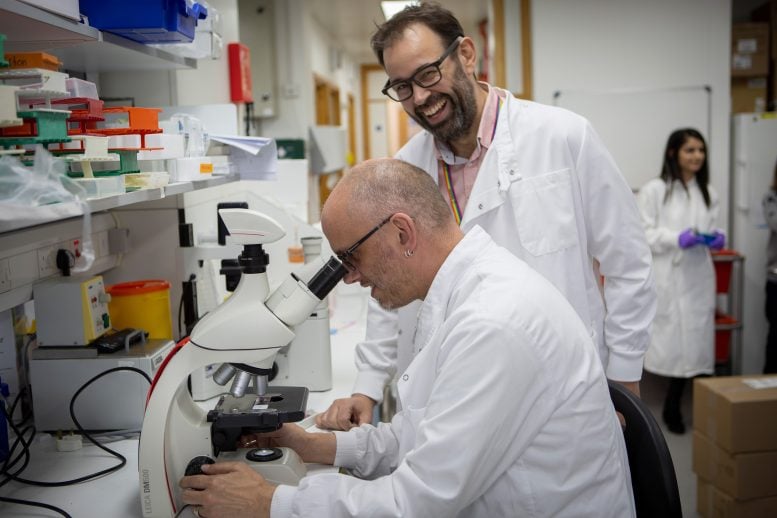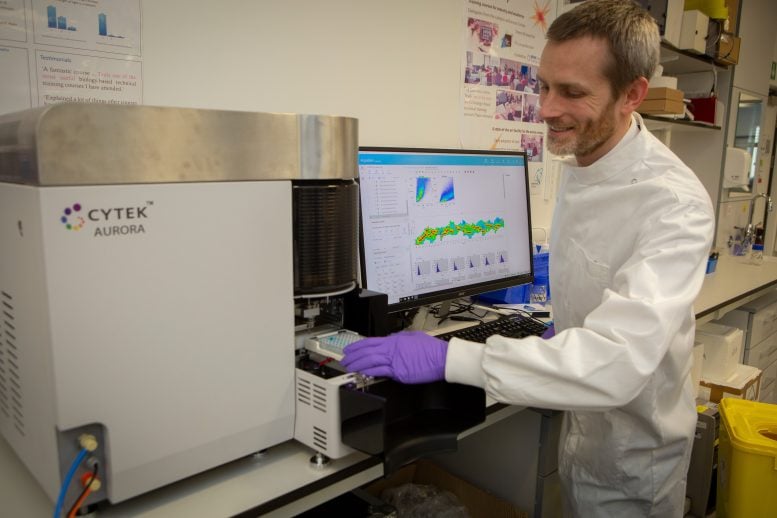
Cambridge researchers have discovered that regulatory T cells traverse the body to repair tissue, opening avenues for targeted treatments in various diseases.
Researchers at the University of Cambridge have found that regulatory T cells, a kind of white blood cell, form a single, large group that continuously circulates throughout the body to seek out and repair damaged tissues.
This overturns the traditional thinking that regulatory T cells exist as multiple specialist populations that are restricted to specific parts of the body. The finding has implications for the treatment of many different diseases – because almost all diseases and injuries trigger the body’s immune system.
Current anti-inflammatory drugs treat the whole body, rather than just the part needing treatment. According to the researchers, their findings mean it could be possible to shut down the body’s immune response and repair damage in any specific part of the body, without affecting the rest of it. This means that higher, more targeted doses of drugs could be used to treat disease – potentially with rapid results.

Unified Healing Force
“We’ve uncovered new rules of the immune system. This ‘unified healer army’ can do everything – repair injured muscle, make your fat cells respond better to insulin, and regrow hair follicles. To think that we could use it in such an enormous range of diseases is fantastic: it’s got the potential to be used for almost everything,” said Professor Adrian Liston in the University of Cambridge’s Department of Pathology, senior author of the paper.
To reach this discovery, the researchers analyzed the regulatory T cells present in 48 different tissues in the bodies of mice. This revealed that the cells are not specialized or static, but move through the body to where they’re needed. The results are published today in the journal Immunity.
Regulatory T cells can migrate from tissue to tissue via the blood. The cells take merely minutes to travel around the body, and then slow down to a crawl once they enter a tissue, spending on average three weeks inside the tissue before leaving. Credit: Equinox Graphics
“It’s difficult to think of a disease, injury, or infection that doesn’t involve some kind of immune response, and our finding really changes the way we could control this response,” said Liston.
He added: “Now that we know these regulatory T cells are present everywhere in the body, in principle we can start to make immune suppression and tissue regeneration treatments that are targeted against a single organ – a vast improvement on current treatments that are like hitting the body with a sledgehammer.”
Drug Development and Clinical Applications
Using a drug they have already designed, the researchers have shown – in mice – that it’s possible to attract regulatory T cells to a specific part of the body, increase their number, and activate them to turn off the immune response and promote healing in just one organ or tissue.
“By boosting the number of regulatory T cells in targeted areas of the body, we can help the body do a better job of repairing itself, or managing immune responses,” said Liston.

He added: “There are so many different diseases where we’d like to shut down an immune response and start a repair response, for example, autoimmune diseases like multiple sclerosis, and even many infectious diseases.”
Most symptoms of infections such as COVID are not from the virus itself, but from the body’s immune system attacking the virus. Once the virus is past its peak, regulatory T cells should switch off the body’s immune response, but in some people, the process isn’t very efficient and can result in ongoing problems. The new finding means it could be possible to use a drug to shut down the immune response in the patient’s lungs, while letting the immune system in the rest of the body continue to function normally.
In another example, people who receive organ transplants must take immuno-suppressant drugs for the rest of their lives to prevent organ rejection, because the body mounts a severe immune response against the transplanted organ. But this makes them highly vulnerable to infections. The new finding helps the design of new drugs to shut down the body’s immune response against only the transplanted organ but keep the rest of the body working normally, enabling the patient to lead a normal life.
Most white blood cells attack infections in the body by triggering an immune response. In contrast, regulatory T cells act like a ‘unified healer army’ whose purpose is to shut down this immune response once it has done its job – and repair the tissue damage caused by it.
The researchers are now fundraising to set up a spin-out company, with the aim of running clinical trials to test their findings in humans within the next few years.
Reference: “The tissue-resident regulatory T cell pool is shaped by transient multi-tissue migration and a conserved residency program” by Oliver T. Burton, Orian Bricard, Samar Tareen, Vaclav Gergelits, Simon Andrews, Laura Biggins, Carlos P. Roca, Carly Whyte, Steffie Junius, Aleksandra Brajic, Emanuela Pasciuto, Magda Ali, Pierre Lemaitre, Susan M. Schlenner, Harumichi Ishigame, Brian D. Brown, James Dooley and Adrian Liston, 18 June 2024, Immunity.
DOI: 10.1016/j.immuni.2024.05.023
The study was funded by the European Research Council and the Biotechnology and Biological Sciences Research Council.
2 Comments
So, vaxx is useless. Knew it all along.
How come scientists came to believe that T cells were specialised to specific areas of the body/or restricted to separate populations of T cells that only did certain specific jobs. Basically, T-cells are all Senior Medical Registrars, and not specialists, and why should people think it would be any different?